What are the three top-selling US smartphones? iPhone
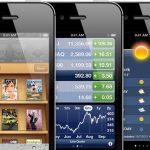
In fourth quarter, that would be iPhone 4S, 4 and 3GS, in order from one to three, according to NPD. But before the Apple Fanclub does high-fives, Android share among first-time buyers outpaced iPhone, as measured by smartphone operating system, contradicting some other analyst data.
"iPhone 4S outsold the iPhone 4 by 75 percent, and outsold the iPhone 3GS, available for free on AT&T, five to one", Ross Rubin, NPD executive director, says. Well, so much for my theory older, discounted iPhones was a brilliant Apple strategy. Which again raises questions about the power of brand, considering iPhone isn't LTE, while AT&T and Verizon offer real 4G smartphones -- all Androids.
Apple claims smartphone crown from Nokia, Samsung
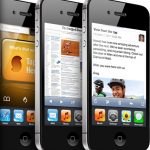
iPhone's remarkable fourth-quarter surge -- 37 million units -- lifted the handset ahead of the two previous smartphone leaders, according to Canalys. For full year 2011, Apple shipped 93.1 million smartphones, compared to Samsung's 91.9 million and Nokia's 77.3 million. Nokia, the company that invented the smartphone, has bled share since iPhone launched nearly 5 years ago, but artery versus vein since announcing the switch to Windows Phone from Symbian in February 2011.
Apple's climb to the top followed October's iPhone 4S launch and availability of older 3GS and 4 models for free and $99, respectively. Samsung shipped 35.3 million smartphones in Q4, behind Apple, while Nokia shipped 19.6 million -- a stunning 31 percent decline. By comparison, iPhone shipments surged 128.1 percent for the quarter and 96 percent for the year.
So much for iPhone catching Android

Just weeks ago the Apple Fanclub of bloggers and journalists giddily posted about how iPhone had reversed Androids' gains. But new data from comScore shows that, in the United States at least, Android is doing just fine, despite iPhone's remarkable fourth-quarter sales surge (more than 37 million units).
As measured by smartphone OS among cellular subscribers 13 and older, Android share grew to 47.3 percent at the end of December from 44.8 percent three months earlier. During the same time period, iPhone/iOS rose 2.2 points to 29.6 percent share. More broadly, for all handsets, Apple was the only manufacturer to gain share during fourth quarter -- up 2.2 points to 12.4 percent, or twice free-falling Research in Motion. Samsung firmly held its lead, 25.3 percent, which is the same as end of September.
iPad share plunges as Android tablets make dramatic gains
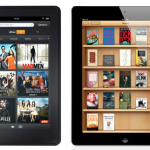
Do I have your attention yet? Apple fans needn't worry, iPad has considerable lead over Android tablets. iPad global market share, as measured by mobile operating system, fell to 57.6 percent in fourth quarter from 68.2 percent a year earlier, according to Strategy Analytics. Meanwhile, Android tablets rose to 39.1 percent from 29 percent. Something else: Windows climbed from zero to 1.5 percent, and that's without tablet-optimized Windows 8.
Despite popular convention that people only want iPad, clearly somebody is buying Android. Strategy Analytics doesn't break down the numbers by vendor, but there's reason to ask about one. Amazon. For months there has been oft-asked question: Would $199 Kindle Fire cut into iPad sales? Last month, Amazon said that it sold over 4 million Kindles in December, but wouldn't specify how many were tablets. "Apple shrugged off the much-hyped threat from entry-level Android models this quarter", Peter King, Strategy Analytics director, says. Perhaps that's answer enough.
Android, not iOS, will win over developers
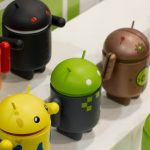
Android will replace iOS as the most important platform to developers within the next 12 months, British analyst firm Ovum says. It also notes an increased interest in Windows Phone and BlackBerry OS, and sees a move towards web standards in development over proprietary technologies.
Timing is surprising. Tomorrow, Apple will announce fourth calendar quarter earnings, where analysts expect record iOS device sales. Despite these platform gains, developer attention shifts to Android.
Motorola fends off Apple's patent attack, Microsoft next

Is Apple a victim of its own success? After a considerable string of patent wins in the courts against Android through much of 2011, the tide has turned. The International Trade Commission ruled that Motorola Mobility does not infringe on three patents that Apple sued over in October 2010.
Motorola filed an ITC complaint at that time targeting the Macbook, iPad, and iPhone. Apple retaliated by filing a suit of its own, accusing the Libertyville, Ill. phone manufacturer of infringing on its own patents, two of which deal with touchscreen technology.
Tim Cook takes iPhone where Steve Jobs couldn't
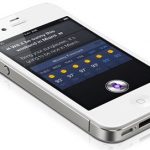
In one Samsung iPhone-mocking "Next Big Thing" commercial, an Apple fan laments: "If it looks the same, how will people know I upgraded?" Maybe that's the point of iPhone 4S -- people aren't suppose to know whether you have the new or older model. If that's the intention, and not some dumb-luck circumstance, then Apple CEO Tim Cook deserves high praise for brilliant, strategic execution. Rather than fraking up by not releasing iPhone 5 last year, Apple may have in iPhone 4S achieved a marketing milestone worthy of industry recognition -- or at least some PhD candidate's dissertation.
It's like this: Analyst data from several sources released this week shows surprising iPhone uptake, whether actual sales or simple consumer intentions to buy. The most compelling comes from NPD, which October/November US retail sales figures are nothing short of shocking. Year over year, Android smartphone OS sales share rose to 60 percent from 45 percent in third quarter 2011. During the same time frame, iOS went from 23 percent to 29 percent sales share. Both operating systems had dipped and rose during that year. But in just two months, October to November, Android fell share from 60 percent to 47 percent, while iOS rose from 29 percent to 43 percent. I see Apple's iPhone 4S strategy, not the new smartphone's actual sales, as the reason.
Galaxy Nexus shames iPhone 4S Siri
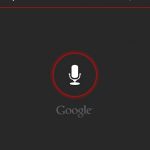
So much for Apple's voice command/response technology Siri.
Among this year's holiday presents, our family received a gift card for Italian eatery Buca di Beppo, which my daughter gladly used to go out to dinner with a friend. So last night, they're ready to drive but no one knows to where. She pulls out her iPhone 4S and speaks "directions to Buca di Beppo", which Siri can't understand and repeatedly gives meaningless results when she tries again.
Hark the Herald Androids Sing

So-o-o-o-o, I'm trying to get into the holiday spirit here at BetaNews, which explains posting the Team CoCo video mocking Amazon Kindle Fire. That's one for all you iPad lovers and Apple fans. Retrevo has redone two classic Christmas carols, and, it only seems fair after giving iPad idolaters a present the Android army should get one, too.
Sing along for Android "our newfound king". Given Android's recent market share rise against iOS, that's no idle claim.
Google activates 486 Androids per minute

That's 700,000 a day, 21 million a month or 63 million per quarter. What about iOS? Apple won't likely reveal numbers until January, when announcing holiday quarter results. Don't expect them to be anywhere near as high, but not trailing way far behind, either. Android activations are lopsided, mostly from smartphones, while iOS sees traction on handsets and media tablets.
Android head honcho Andy Rubin revealed the activations last night in a Google+ post: "There are now over 700,000 Android devices activated every day". He later qualified, and this is important: "For those wondering, we count each device only once (ie, we don't count re-sold devices), and 'activations' means you go into a store, buy a device, put it on the network by subscribing to a wireless service".
What is Microsoft's problem with Android apps?

Suddenly, Microsoft is a major developer for iOS. The software giant better known for Windows dropped three iOS apps or updates in just two days, and there are rumors of more coming (e.g. Office). But what about Android? "What about Android?" you ask, surprised. "Why should Microsoft give a hoot's fart app about Android? Google and open source are reasons enough why not Android". Yes, but Microsoft makes heaps of money from Android. Nothing from iOS.
Shouldn't Microsoft support the platform that is more personally profitable? The Redmond, Wash.-based company now has convinced most major Android developers to pay licensing fees, presumably because the open-source OS violates Microsoft patents. Perhaps threat of lawsuit is enough. It's serious money, too, $10 or more per device -- if rumors are to be believed. "Patent trolling with Microsoft" I called it in July. Microsoft makes what from iOS? Diddly.
Who gets what at Android Market? [infographic]
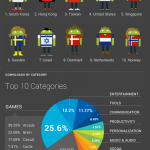
Earlier this week, Google proclaimed an important milestone for Android Market: 10 billion downloads. That's still something like 8 billion behind Apple's App Store. The questions: who, what, when and where? There are answers in a handy infographic posted by Eric Chu, Android Developer Ecosystem, yesterday.
Asia rules, based on per-capita downloads -- four of the top-five are from the Pacific Rim. South Korea leads, while the United States nudges past Singapore to capture the fourth spot. European nations claim four of the next five spots, with Israel pushing between Sweden and Denmark for sixth place. Apparently, by the per-capita measure, the Americas aren't so hot for Android Market.
Android Market is unstoppable

The tipping point fast approaches in the Android/iOS platform wars. This week, Android Market reached an important milestone: 10 billion downloads. While still far behind Apple's App Store, Android Market is catching up at a ferocious pace. Only huge iOS device shipments can slow Android's advance now, and Holiday sales will matter much there.
For comparison, App Store reached 15 billion downloads in July, up from 10 billion in January and 3 billion a year earlier. But Android Market is accelerating at faster pace, which isn't surprising given the number of device activations (550,000-plus per day) and how many more handsets/tablets are available compared to iPhone and iPad. Android Market went from 3 billion downloads in March to 6 billion in July to 10 billion in December.
Why buy iPad when you can gift so much more?

All signs point to an iPad Christmas, for many people this year. But it's a pricey gift, starting at $499, and Apple isn't giving much away. Over the past 24 hours, I stumbled onto some unexpected Android alternatives that will put more than just a shiny new tablet under the Christmas tree.
Simply put: If you're looking for a tablet but need to accessorize, iPad 2 will tighten your gifting budget. Meanwhile, competitors serve up some sweet deals that will let you give more for about the same price, or even less. If you think nothing compares to iPad 2, you're wrong.
Would you pay $200 for Motorola XOOM LTE?
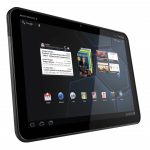
Verizon kicked off helluva holday sale for XOOM LTE on Black Friday -- and you can still get it today online: $199.99 with new two-year activation. But hurry, if interested. Surely pricing like this can't last. That's $529.99 less than the closest comparable iPad 2, and you won't get an LTE radio from Apple.
Is that price low enough for you to buy? In February, when XOOM pricing first leaked, I asked: "Would you pay 800 bucks for the Motorola XOOM?" Eh, no, you wouldn't. You didn't like $600, when I asked about it later on. But now the price is way less, so I'm asking again. Would you pay $200 for Motorola XOOM LTE? Please answer in comments.
Recent Headlines
BetaNews, your source for breaking tech news, reviews, and in-depth reporting since 1998.
Regional iGaming Content
© 1998-2025 BetaNews, Inc. All Rights Reserved. About Us - Privacy Policy - Cookie Policy - Sitemap.